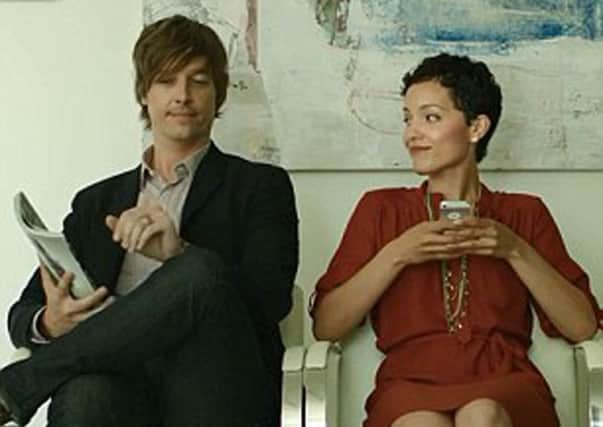Lori Anderson: The times we needlessly say ‘sorry’


I walked out of that aisle fuming and with my head in a cloud of self-loathing: “You utter sap! What were you doing apologising, you should have berated him for cluttering the middle of the aisle with his basket of bloody quails eggs and sourdough.”
All the way home his understanding generosity in assuring me it was “quite all right” to nearly break my neck on his weekly shop and that his quails eggs were unblemished stuck in my craw like a chicken bone.
Advertisement
Hide AdAdvertisement
Hide AdI’m not alone, it seems. The liberal use of the s-word by women is now the subject of vigorous debate in America, triggered by a new advert for Pantene shampoo. In the ad, which has already received more than 3.3 million YouTube hits, a number of women say “sorry” for a range of situations that don’t actually deserve a mea culpa, including opening a colleague’s office door to make an enquiry; responding to a man encroaching on a shared armrest; passing a child to their father; introducing a question; and duelling for the duvet cover. The ad is heralded with the words: “Why are women always apologising?” and in the second half of the ad the “sorry” is replaced with more positive alternatives. Women are then urged to “shine strong” and, naturally, buy the brand that is now doing so much for their morale and long, lustrous hair.
Across the Atlantic there has been a spate of pondering over whether women are now too quick to draw an apology from their linguistic holster. In Time magazine Jessica Bennett wrote that: “Sorry is a crutch – a tyrannical lady-crutch. It’s a space filler, a hedge, a way to politely ask for something without offending, to appear ‘soft’ while making a demand.”
Linguist Deborah Tannen believes the word is no longer a way to admit guilt but has evolved into a way of noting a person’s presence – but even she believes it is more popular with women than men. She writes: “I see this as the more general phenomenon that language almost never means what the dictionary definition says; it’s used the way others use it – as a ritual. But those who don’t share the ritual tend to take the words literally. Since American men don’t tend to use ‘sorry’ this way, they mistakenly take women’s use of it literally, as an apology.”
I’m not so sure that “sorry” in its common use is the sole preserve of women who use it as a linguistic shoehorn to ease them in and out of mildly awkward social situations. I think “sorry”, like a grey, meek confetti, is sprinkled evenly into our conversations by both men and women. Think of Hugh Grant in Four Weddings and a Funeral and you have in mind the physical epitome of the British cringe. We are, to the word “sorry” what the Germans are to towels and sun loungers – we display an obsessive need to get one’s apology in first.
A spin around Europe teaches us that we are almost alone in sticking “sorry” on to all manner of social encounters where it clearly has no place. A German is unlikely to apologise if the motion of the train prompts him to bump against your arm, there may be a mild smile but they will assume you know as well as they do that the incident was beyond their control.
Over the past few decades we’ve worn all the sharp edges off “sorry”. Saying it used to involve paying an emotional price as one was reporting one’s current emotional state, which was a feeling of sorrow or regret. Today the word flows out as smooth as a small pebble and carries as little force. “Sorry” has become like a word in Cantonese, where the meaning of words differ considerably depending on the tone in which it is spoken. Who hasn’t used “sorry” to mean: “I just dare you to say that again”?
Sorry is no longer the hardest word, in fact it’s now the easiest and I’m not so sure if that is necessarily a good thing. If you don’t agree, well, I’m sorry.